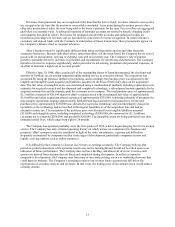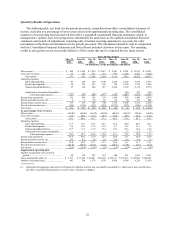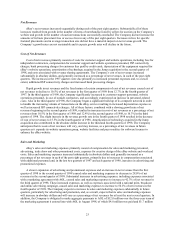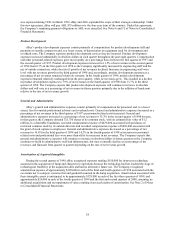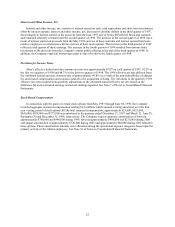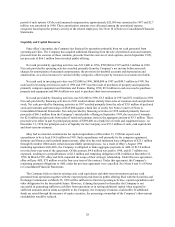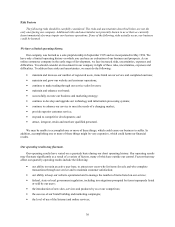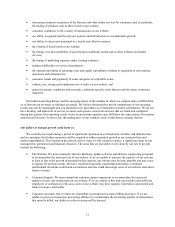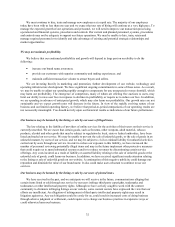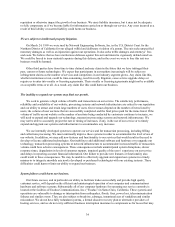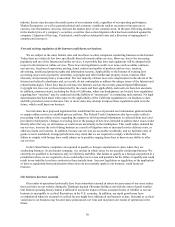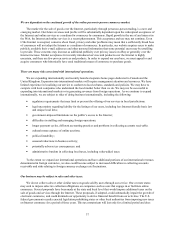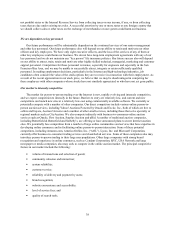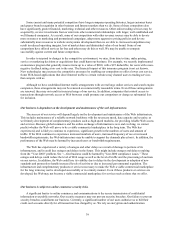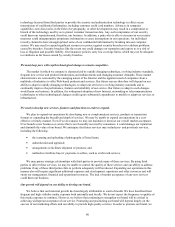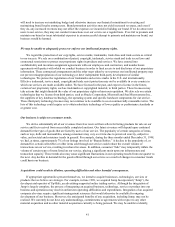eBay 1998 Annual Report Download - page 31
Download and view the complete annual report
Please find page 31 of the 1998 eBay annual report below. You can navigate through the pages in the report by either clicking on the pages listed below, or by using the keyword search tool below to find specific information within the annual report.31
• increasing consumer acceptance of the Internet and other online services for commerce and, in particular,
the trading of products such as those listed on our website;
• consumer confidence in the security of transactions on our website;
• our ability to upgrade and develop our systems and infrastructure to accommodate growth;
• our ability to attract new personnel in a timely and effective manner;
• the volume of items listed on our website;
• the timing, cost and availability of advertising in traditional media and on other websites and online
services;
• the timing of marketing expenses under existing contracts;
• technical difficulties or service interruptions;
• the amount and timing of operating costs and capital expenditures relating to expansion of our business,
operations and infrastructure;
• consumer trends and popularity of some categories of collectible items;
• volume, size, timing and completion rate of trades on our website; and
• general economic conditions and economic conditions specific to the Internet and electronic commerce
industries.
Our limited operating history and the emerging nature of the markets in which we compete make it difficult for
us to forecast our revenues or earnings accurately. We believe that period-to-period comparisons of our operating
results may not be meaningful and you should not rely upon them as an indication of future performance. We do not
have backlog, and almost all of our net revenues each quarter come from auctions that are listed and completed
during that quarter. Our operating results in one or more future quarters may fall below the expectations of securities
analysts and investors. In that event, the trading price of our common stock would almost certainly decline.
Our failure to manage growth could harm us.
We currently are experiencing a period of significant expansion in our headcount, facilities and infrastructure
and we anticipate that further expansion will be required to address potential growth in our customer base and
market opportunities. This expansion has placed, and we expect it will continue to place, a significant strain on our
management, operational and financial resources. The areas that are put under severe strain by our rate of growth
include the following:
• The Website. We must constantly add new hardware, update software and add new engineering personnel
to accommodate the increased use of our website. If we are unable to increase the capacity of our systems
at least as fast as the growth in demand for this capacity, our website may become unstable and may cease
to operate for periods of time. We have experienced periodic unscheduled downtime. Continued
unscheduled downtime could harm our business and also could discourage users of our website and reduce
future revenues.
• Customer Support. We must expand our customer support operations to accommodate the increased
number of users and transactions on our website. If we are unable to hire and successfully train sufficient
employees or contractors in this area, users of our website may have negative experiences and current and
future revenues could suffer.
• Customer Accounts. Our revenues are dependent on prompt and accurate billing processes. If we are
unable to grow our transaction processing abilities to accommodate the increasing number of transactions
that must be billed, our ability to collect revenue will be harmed.


